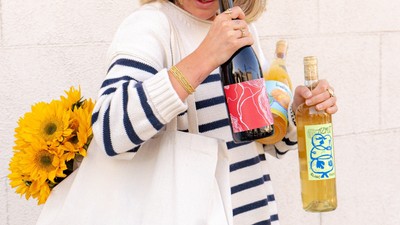This month, we’re excited to feature a battle of bottled-in-bond whiskies only available to club members; Heaven Hill Bottled in Bond and George Dickel Bottled in Bond, representing the two most iconic whiskey producing states; Kentucky and Tennessee. It’s always good to revisit the bottled-in-bond discussion, because even 123 years after the passing off the Bottled in Bond Act of 1897, there are still only about 16 distilleries producing roughly 36 different brands of bottled-in-bond spirits. The rules state that in order for a spirit to be labeled such, it must be the product of one distillation season (January–June or July–December) by one distiller at one distillery. Additionally, it must have been aged in a federally bonded warehouse under U.S. government supervision for at least four years and bottled at 100 (U.S.) proof (50% alcohol by volume). The bottled product's label must identify the distillery where it was distilled and, if different, where it was bottled. Only spirits produced in the United States may be designated as bonded. Does all of this mean better quality? Back in the early 1900s: absolutely. Nowadays, the term is a bit archaic, and most importantly can be confusing to the majority of consumers.
The original purpose of the bottled-in-bond act was to ensure a standard of quality in bourbon whiskey. Before then, the majority of whiskey sold was marketed as straight whiskey. However, very little was done to regulate the authenticity of those claims. With popularity and profitability of American whiskey exports on the rise due to the British industrial revolution, and later the eradication of grape vines in Europe due to phylloxera, the government designed a way to shore up taxation industry wide while providing distillers incentive to offset their excise tax liability into the future for aging whiskey. Colonel Edmund Haynes Taylor was said to have been instrumental in working with his friends in congress to assure safe passage of the legislation. This was convenient for him, as he had just completed the grand Victorian castle inspired Old Taylor distillery ten years prior.
To ensure distilleries were in compliance, the United States Treasury assigned control agents to each bonded warehouse at distilleries across the country. It was the agent’s job to lock and unlock the distillery stillhouse and warehouses each day, ensuring that all whiskey shipped out was properly recorded for taxation. This is what gave way to the term ‘spirit safe’, because in order to actually run the still, the spirit safe had to be unlocked each morning in order to control the valves. The days of spirits excisemen manning the gates to the distillery are certainly over, but ironically (and unfortunately) the tax laws surrounding spirits production and distribution in America haven’t changed much since then. But that's a whole other conversation.
-Joshua Thinnes, Whisk(e)y Evangelist
Heaven Hill Bottled in Bond
Heaven Hill makes all of their whiskey at the Bernheim facility in Louisville, KY. Unlike their Bourbon Heritage Center in Bardstown, which is open to the public, this private production facility focuses on production, not customer experience. To say this place is massive is an understatement. Over twelve 125,000 gallon fermenters pump out enough liquid to distill and fill roughly 1,400 barrels a day, making them the second largest producer in the US, the first being Jim Beam.
In 2018, much to the dismay of bourbon drinkers in the tri-state region of Kentucky, Heaven Hill discontinued its 6 year old bottled-in-bond bourbon. They came back to market at the end of 2019 with bottled-in-bond 7 year old with a revamped package design, and the goal of distributing in markets across the country. Due to the enormous size of California’s market, only a limited amount of bottles came to the Bay Area, and bottles were on allocation to existing Heaven Hill supporting accounts.
Heaven Hill Bottled-in-Bond 6 year Kentucky Straight Bourbon Whiskey quickly became one of the best selling bourbons in the state of Kentucky after its release in 1939. Heaven Hill has acquired more bottled-in-bond brands than any distillery, and today produces nine different brands carrying the designation on the label.
George Dickel Bottled in Bond
Like many of his time, George Dickel had long been an established Nashville merchant before entering into the whisk(e)y business. He built a name marketing smooth and mellow spirits in the region and later purchased a large stake in the Cascade Hollow Distillery in 1878. They preferred the long time Scottish tradition of spelling whisky without the ‘e’.
One of the other unique traditions he enacted was his preference for distilling in the winter months versus the summer months, because George felt it made the whisky smoother. Like their neighbors in Lincoln County, they used a process of chill filtering before undergoing a charcoal filtration, a process that leaves the whiskey ultra smooth and polished.
Many people don’t realize that, while bourbon has to be American made, it does not have to be made in Kentucky. The Dickel Bottled in Bond Tennessee whisky (notice the omission of the ‘e’, (a stylistic branding choice) cannot be called bourbon because it is charcoal filtered, not because it is from Tennessee.
Find similar articles
American Whiskey Club




